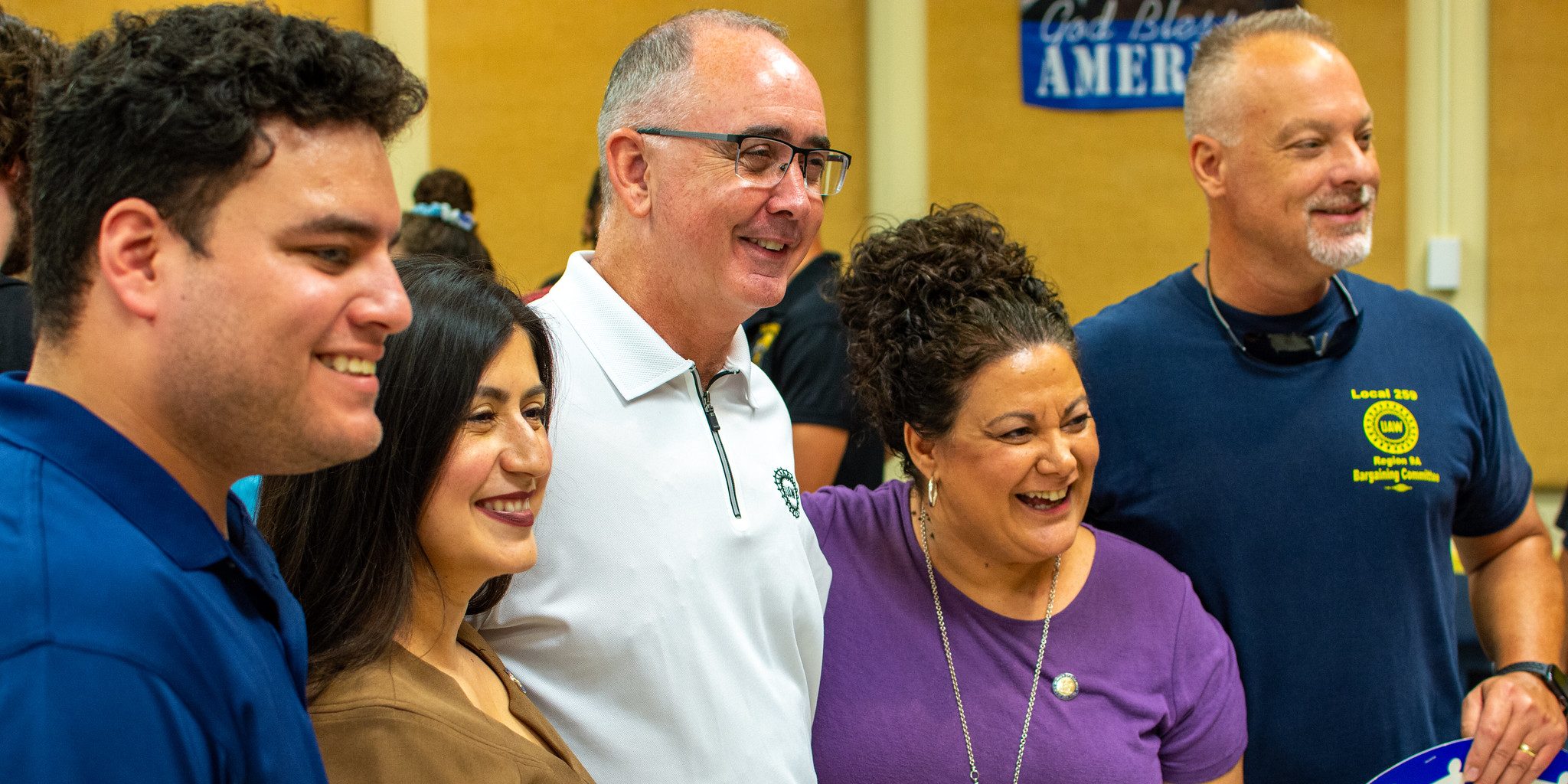Forming and strengthening unions is key to improving our work lives and building a more just society. But organizing can be difficult, time-consuming work, and even the most dedicated organizers and leaders need a break.
After you form a union, how do you keep members engaged and inspire others to step up as leaders?
Organizing for the Long Haul
Keeping members active and making them feel ownership in their union is hard work — especially when members feel disengaged or despondent. In unions and organizing campaigns, it’s common for much of the work to fall to just a few committed people who have the time and motivation to put in the effort.
But broadening leadership beyond a small group of people is crucial — it both helps to prevent burnout and ensures the strength of a union in the long run. One of the realities of sustaining a union is that organizers, on top of everything else they must do, have to find time to identify and nurture new organizers and future leaders. But how?
Back to Basics: One-on-Ones and Identifying Leaders
Finding new leaders and reengaging members is a good time to return to the fundamentals of organizing — namely, one-on-one conversations with co-workers. Whether a union is new or old, it’s important for leaders to listen actively to members’ issues and their ideas for solutions.
In unions with lagging engagement, members sometimes have complaints about the contract or about union leadership itself. Don’t get defensive! Think of these as opportunities to let members vent their frustrations and make themselves heard. In response to a member who is upset with a specific contract provision, you might say, “You’re right, that clause sucks. How do you think we can improve it in our next contract? Do you know anyone else who’s upset about this and wants to take action?”
The first step to getting members more involved is validating their concerns and complaints. And these types of conversations are perfect venues for identifying new leaders.
Delegate, Delegate, Delegate
One-on-one conversations will allow you to take the next step toward getting more members involved: delegating work.
Distributing work both frees up leaders to take on other tasks and gives members more of a stake in their union. They’re more likely to care about a union action, for instance, if they had a role in planning it.
Delegating can start small. You could ask a member to hand out flyers to co-workers or post them on a bulletin board. You could ask someone to handle a food order for an upcoming union meeting, or to help plan a department social.
From there, small logistical tasks can turn into bigger, issue-based ones. You could ask those who successfully completed small tasks to talk to three of their colleagues about, say, overtime pay and to bring them to a meeting. After taking on a couple of responsibilities like these, someone who might not have ever thought of stepping into a leadership role starts to see that they’re valued — and that, suddenly, they’re an organizer, too.
Shake Up Your Meetings
Spicing up meetings might sound like a small step, but it can go a long way toward boosting engagement.
As we all know, work meetings can be boring, uninspiring affairs featuring little more than dull recitations of information that could have been emailed. Union meetings should be the opposite.
As Labor Notes puts it:
Meetings should give members a sense of power by bringing them together. They can see and feel that they are not alone, that others have similar problems, and that others have found solutions. Meetings should give members the opportunity to observe leaders and potential leaders in action. They can learn from each other, combine ideas, and build something bigger.
Some ideas for spicing up meetings:
- Get rid of boring reports and create meaningful agendas that focus on pressing workplace issues.
- Encourage active participation through small group discussions and other interactive activities.
- Switch up meeting times and locations so that you’re making them accessible for all members.
Strong Unions Are Democratic Unions
Remember that the key to overcoming disinterest is by getting more people to speak up, take action, and feel ownership of their union. In other words, workplace democracy. Check out Labor Notes for more tips on beating apathy.




